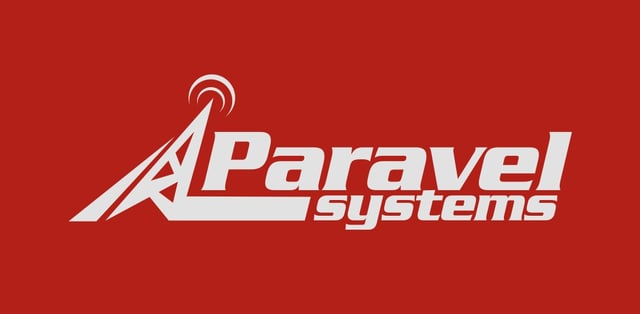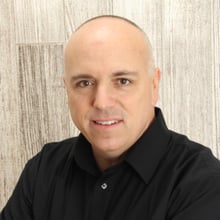A Journey to Rivendell | Telos Alliance
By The Telos Alliance Team on Oct 25, 2017 11:30:00 AM
A Journey to Rivendell
 |
| Paravel cofounder Fred Gleason |
Originally developed for Salem Communications in the early 2000s, Rivendell is a widely-used radio automation program. After developing the system using the open-source Linux platform and tweaking it to do automation the way Salem did it, Rivendell creator (now President and Chief Developer) Fred Gleason, who had worked for Salem himself, founded Paravel Systems. We sat down for a chat with Fred recently to get the story of Paravel and how Rivendell came about.
What’s the history of Paravel? When was the company founded, and how did it come about?
The history of Paravel is closely related to development of Rivendell. A lot of Salem’s programming at the time consisted of blocks of long-form programs, and the automation offerings available at the time (around 2002) were not optimized for that type of format. I was asked to develop a new system. Salem adopted the system, and Scott Spillers managed the support component.
About five years later, around 2007, I departed from Salem and founded Paravel Systems. Scott became a part of that as well, as he was and remains the expert on supporting the system and getting it to do what customers need it to do.
What specific needs that other automation systems didn’t meet were the impetus for the development of Rivendell?
There was one that was a particular bee in my bonnet, and that was that virtually all of the commercial systems available were based on one operating system, and there are inherent compromises that come along with that. Scott and I had some ideas about a system that would run on Linux, which, being open-source, by the very nature of its design can be much more precisely targeted to do what the application requires. What the application does not require or that can be detrimental to it can be removed.
Rivendell is a major name in broadcast automation… What makes Rivendell such a popular brand?
It depends on who’s adopting it. To be perfectly honest, in a lot of cases–it’s because it’s free–that’s the primary ‘selling’ point. You don’t need a lot other than hardware and knowledge to get into it.
For some broadcasters, the fact that it’s free is actually a sales obstacle. There’s a perception that if something is free it can’t be good. There must be something missing or there must be something wrong with it.

On the other hand, some broadcast engineers prefer the Linux operating system, and come to Rivendell for that reason. They love the flexibility of the open-source platform. They’re impressed by its stability and performance, and they want that for their on-air delivery system.
Some customers come to Rivendell for its features and capabilities. Rivendell addresses some niche markets that none of the commercially available systems address. A lot of automation systems are radio station centric. There are about 12,000 radio stations in North America; there are perhaps a few dozen network head-ends. Rivendell has a number of features that are specifically designed to appeal to companies that originate content. This includes a number of major broadcast networks that produce syndicated content for broadcast all across multiple networks.
Why did Paravel become a Livewire partner, and how do Paravel’s products integrate with Telos Alliance products?
We became a Livewire partner because it’s a natural fit in many ways. One of the things that any radio automation system has to do is talk to equipment in the plant—that could be traffic scheduling systems, music scheduling systems, routers, transmission, a website—the list goes on. Livewire is all about facilitating that kind of control, so it was a natural fit. We were providing Livewire integration before the partner program even existed.
What helped in that effort was the fact that Livewire was built on internet protocols and standards, which was the place Linux was born from in the 1990s. Linux is informed by that very same set of standards, so a lot of what was needed to make it work already existed.
"Livewire is all about facilitating . . . control, so it was a natural fit."
—Fred Gleason, cofounder and President and Chief Developer, Paravel Systems
Outside of being a Livewire partner, what’s the significance of being associated with the Telos Alliance?
It’s been a very fruitful partnership. It’s allowed us to grow into some product lines beyond just radio automation, such as our WallTime clock. Not least important, it’s just fun. I remember a story that illustrates this.
Back around 2003, around the time Rivendell got started, I was asked to develop a call-screening application that would work with the Telos 2x12, which had just been introduced. I came up with a system and just on a lark, I sent a copy of the press release to Telos. I expected it might be ignored, but a day later I got a reply from Steve Church saying “This is so cool!” and directing the Telos team to put a link to it on the website. When he started pushing it, I realized these were fun guys to work with. You would probably not have gotten that response from many other companies.
That’s a great story! Can you tell us about any new innovations Paravel is working on?
We are continuing to build upon and expand the clock. We have a new firmware release that supports real-time metering, and there will be more in the coming months.
 |
| Paravel cofounder Scott Spillers |
So with a name like Rivendell for your flagship product, we have to ask… Are you guys Lord of the Rings fans?
I’m the [Lord of the Rings trilogy author] J.R.R. Tolkien fan. There’s a bit of a tradition at Paravel where I will give working titles to a system that’s being developed that has some connection to legendarium. Most of them don’t make it out to the real world because they don’t necessarily describe anything the product actually does. Rivendell is the exception.
If you’re familiar with the movies, there’s actually a scene that summarizes why I picked that name. When the group approaches Rivendell for the first time, there’s a far-off shot with all kinds of stuff going on… There are buildings and mountains and waterfalls and rivers going by and people walking around. It’s all this interactive life, and to my mind that’s kind of what radio automation does… Somebody waves the baton for everything and brings it all together and makes it cooperate, so Rivendell seemed an appropriate name.
Fascinating analogy… It really paints a picture. Thanks so much for your time Fred! We look forward to future collaboration with Paravel.
Further Reading
For more about our Livewire Partners, read these profiles:
Livewire Partner Profile: Yellowtec
Partner Highlight: Keeping Time with Voceware
Sierra Automated Systems Becomes Newest Livewire Partner
Telos Alliance has led the audio industry’s innovation in Broadcast Audio, Digital Mixing & Mastering, Audio Processors & Compression, Broadcast Mixing Consoles, Audio Interfaces, AoIP & VoIP for over three decades. The Telos Alliance family of products include Telos® Systems, Omnia® Audio, Axia® Audio, Linear Acoustic®, 25-Seven® Systems, Minnetonka™ Audio and Jünger Audio. Covering all ranges of Audio Applications for Radio & Television from Telos Infinity IP Intercom Systems, Jünger Audio AIXpressor Audio Processor, Omnia 11 Radio Processors, Axia Networked Quasar Broadcast Mixing Consoles and Linear Acoustic AMS Audio Quality Loudness Monitoring and 25-Seven TVC-15 Watermark Analyzer & Monitor. Telos Alliance offers audio solutions for any and every Radio, Television, Live Events, Podcast & Live Streaming Studio With Telos Alliance “Broadcast Without Limits.”
More Topics: Livewire Partners, Paravel Systems, Rivendell Automation
Recent Posts
Subscribe
If you love broadcast audio, you'll love Telos Alliance's newsletter. Get it delivered to your inbox by subscribing below!